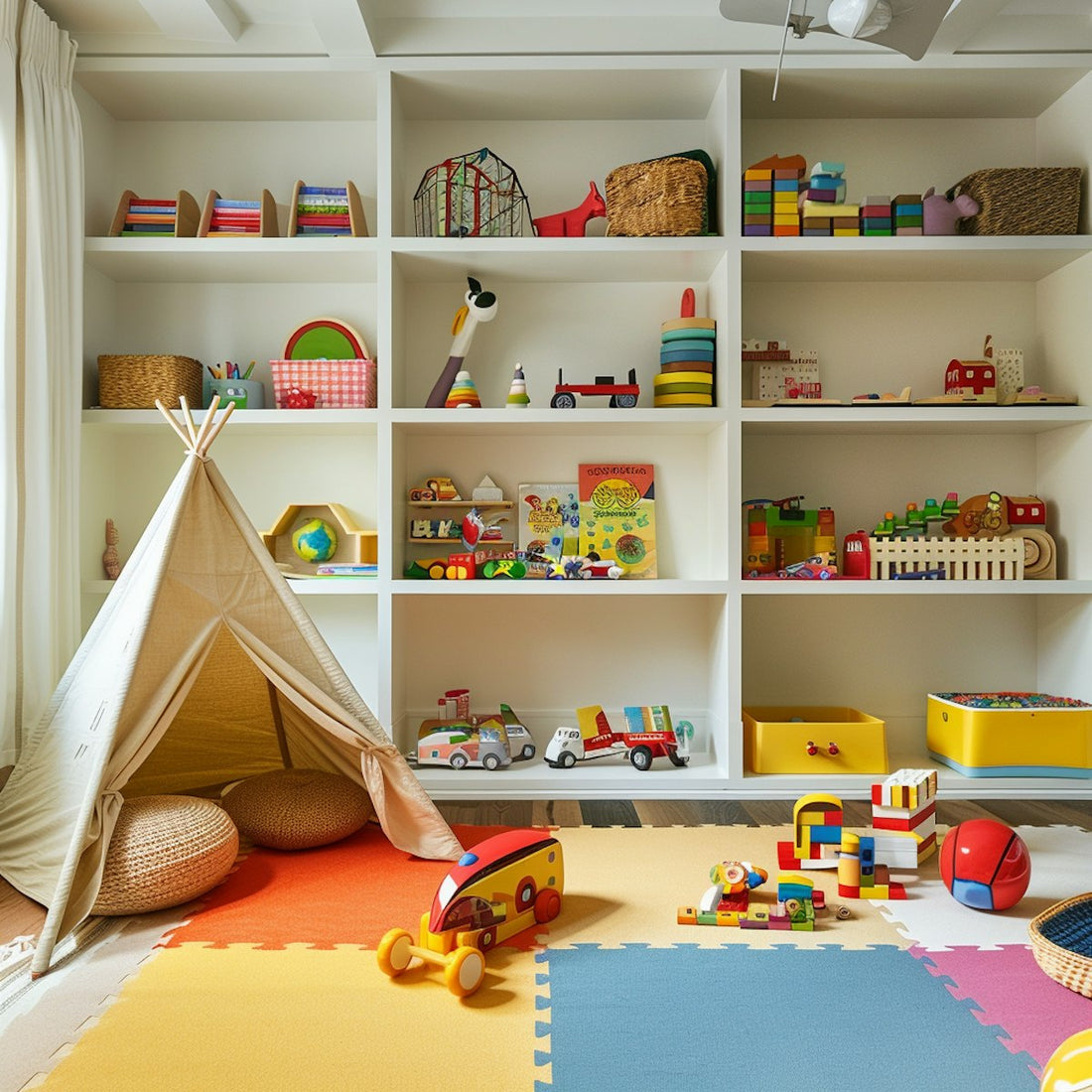
Hidden Toxins in Baby Toys: What Parents Need to Know Before Buying
Share
Many Indian parents assume baby toys are safe, but the truth is more worrying. Hidden toxins like BPA, phthalates, lead, and formaldehyde are found in many toys sold across India, even in reputed shops. If you're searching for non-toxic baby toys in India, this blog explains everything from BPA free baby toys to phthalate free toys India, and helps you understand how to choose safe toys for babies with trusted Indian toy safety standards. Learn what labels to check, which certifications matter, and why switching to toxin free baby products India is not optional anymore.
Hidden Toxins in Baby Toys: What Indian Parents Need to Know Before Buying
When we pick out a toy for our little one, we usually look for something colorful, fun, and safe. But what if the toys we lovingly give our babies carry hidden dangers?
India’s toy market is filled with a variety of options – from low-cost plastic rattles to cute rubber ducks. But many of these don’t meet even the basic safety standards, and unfortunately, Indian laws around toy safety are still catching up.
Let’s break down the hidden chemicals that can be found in everyday baby toys and what parents can do about it.
What Are the Common Harmful Chemicals Found in Baby Toys?
Here are some toxic chemicals that are often found in toys:
- BPA (Bisphenol A): Often found in plastic toys. This chemical can interfere with hormones and affect brain development in babies.
- Phthalates: Used to make plastic flexible. These can affect liver and kidney function.
- Lead: Found in toy paints and coatings. Even small amounts are dangerous for babies’ brains.
- Formaldehyde: Used in adhesives and fabrics. It can irritate eyes, skin, and the respiratory system.
These chemicals can slowly leak out of toys and enter your baby's body through touch, chewing, or inhaling.
Why This Is Especially Dangerous for Indian Babies
Babies in India are often exposed to:
- Hot and humid environments which increase chemical leaching.
- Extended playtimes with one toy.
- Hand-me-down or street market toys that are often unregulated.
- Cheaper toys made from recycled plastic without proper checks.
What Labels and Certifications Should You Look For?
When buying baby toys, especially online or from local shops, always check for:
- BIS Certification (ISI mark): Mandatory in India since 2020 for all toys sold.
- EN71 Certification: European safety standard. If you see this label, it means the toy passed strict tests.
- ASTM F963: A US toy safety standard.
- BPA-Free or Phthalate-Free markings on packaging.
- Food-grade silicone: If you're buying teething toys or rattles, make sure they're made from certified food-grade silicone.
What Types of Toys Are Most Risky?
Some toy types are more likely to contain harmful chemicals:
- Soft plastic toys: These are most likely to contain phthalates.
- Painted wooden toys from unknown sources: Lead in paint can be a risk.
- Squeaky rubber toys: Often contain latex or chemical softeners.
- Battery-operated toys: If poor quality, they may leak acid or catch fire.
Safer Alternatives for Indian Parents
Want to avoid toxic toys? Here’s what Indian parents can do:
- Switch to silicone or cloth-based toys that are marked non-toxic.
- Buy from reputed Indian brands that follow BIS and international norms.
- Avoid street market toys or anything without proper packaging.
- Choose natural wood toys with water-based paint.
- Prefer handmade or locally manufactured toys with traceable raw material info.
Why Toy Brands Often Don’t Talk About This
Let’s face it – revealing this might affect their sales. Many toy brands rely on cheaper imported toys or use recycled materials with no clear origin. The cost of certification is high, so it’s skipped. But at what cost to your child?
What Indian Law Says
The Bureau of Indian Standards (BIS) made it mandatory in 2020 that toys must meet quality and safety standards. However, enforcement is still weak. Many unbranded and even some online toys bypass these rules. That’s why parents must be informed and proactive.
What Happens If Your Baby Is Exposed to These Chemicals?
Long-term effects of chemical exposure in babies can include:
- Delayed brain development
- Behavioral issues
- Hormone disruption
- Allergies and skin irritation
You may not notice these effects immediately, but they can build up over time.
What to Ask Before You Buy a Baby Toy in India
Next time you're buying a toy, ask:
- Is this toy BIS certified?
- Does it mention being BPA-free or phthalate-free?
- Can I trace the material source?
- Is there a safety test report?
- Is this toy suitable for mouthing or chewing?
Should I Buy Imported Toys?
Not all imported toys are safe. Some may not meet Indian standards or could be banned elsewhere. Always check for certification labels, even on foreign toys. Also, many toys from China are cheaper but lack safety certification.
How to Check If a Toy Is Safe (Simple Test at Home)
Here’s what you can do at home:
- Smell the toy: Strong plastic or chemical smell? Avoid it.
- Rub a white cloth: If color comes off, it’s unsafe.
- Bend and twist: If the plastic cracks or flakes, it’s low quality.
- Submerge in warm water: Leaching colors or smell? Unsafe.
Key Takeaways:
- Many Indian baby toys contain hidden toxins like BPA, phthalates, lead, and formaldehyde.
- Look for BIS, EN71, or ASTM certifications before buying.
- Avoid toys with strong smells or from unverified sources.
- Prioritize toys marked BPA-free and made with food-grade silicone.
- Be cautious with plastic, painted, and rubber toys, especially if they are cheap or imported.
- Shift to safe baby products by asking the right questions and choosing brands that care.
Now it’s your turn: Have you ever checked for BPA-free or BIS certification before buying a toy? Share your experience in the comments below.
